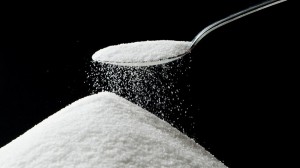There has been a lot of talk and hype around sugar lately and let’s be honest, it’s been pretty confusing. It certainly has made me stop and think, which sent me scurrying back to the literature and research base on the topic. As a dietitian the scientific evidence is always key as is how it is interpreted. Here is a summary of what I have been reading lately and my thoughts.
Myth 1: Sugar is bad for you
Sugar is actually needed by the body in order for it to function. The brain needs glucose. The problems comes when you overconsume sugar as excess sugar = excess calories leading to weight gain.
Myth 2: Fructose is better for you
Fructose is metabolised differently to glucose. Most sugar is broken straight down into glucose in the bloodstream, leading to a rise in insulin levels.
Most fructose (50%) is converted to glucose and ends up in the circulation.
(15%) is stored as glycogen in the liver/muscles
(25%) is converted to lactate
(1-3%) is converted to fat
Myth 3: Natural sugar is better than added sugar
Sugar is sugar. The difference is the rest of the food. Added sugars are usually found in processed foods which contain less nutrition than natural, unprocessed, whole foods such as fruits, vegetables and milk – all of which have natural sugar in them.
So to summarise we do need sugar, so let’s not demonise it, but we don’t want to be having too much of it. All sugars have the same nutritional value providing 4kcals per gram or 16kcals per tsp. Watch that sugar spoon 😉

Pingback: Not all (gluten free) breads are equal | gluten free b